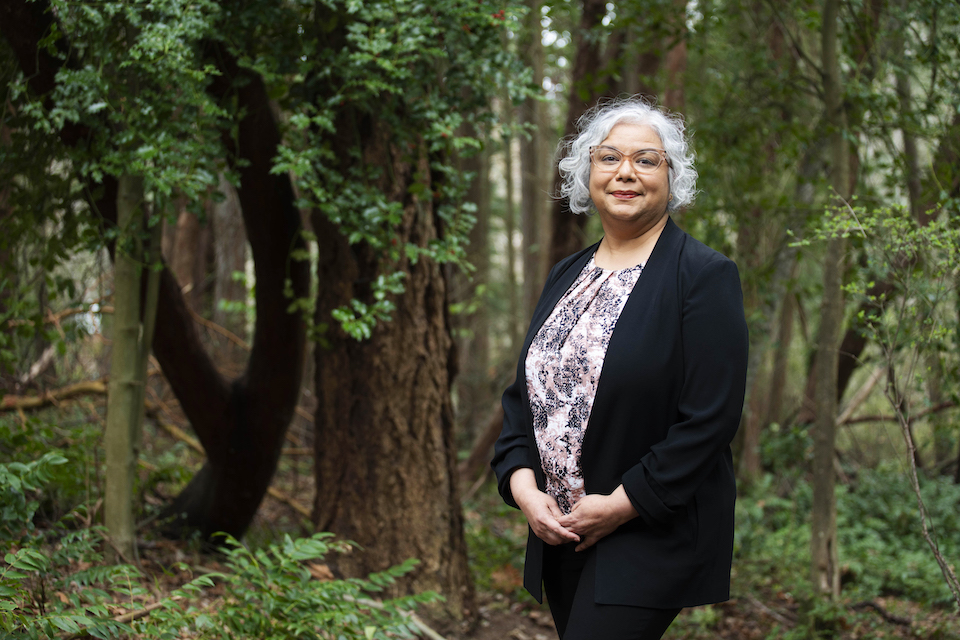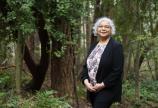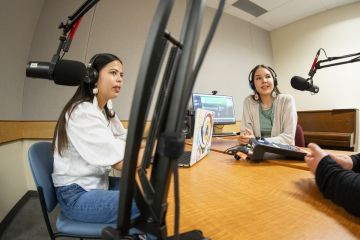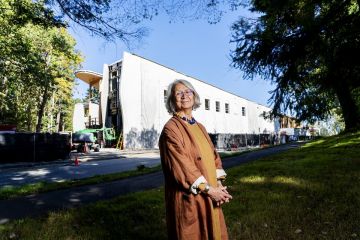Finding common threads of Indigenous laws in a global context
- Julie Sloan

There are common threads that run through experiences of Indigenous communities in different parts of the world—experiences of social, political and economic marginalization, discrimination, displacement, dispossession and loss of autonomy, cultures, lands, languages, legal systems and knowledges. These, however, are not their only stories. There are also stories of resistance, resilience and transnational solidarities.
Pooja Parmar’s research focuses on the complex questions of law and access to justice that emerge from these stories that impact over 350 million Indigenous peoples around the world. A vast majority of these communities are in Asia, with many facing increasing displacement due to reasons that include climate change and development policies. It is this important work that the prestigious President’s Chair in Law and Indigeneity in a Global Context recognizes.
Parmar’s exceptional international scholarship relating to Indigenous rights and histories, as well as her outstanding contributions to questions of ethical legal practice in the context of Reconciliation are changing the way lawyers are working in these spaces.
Her 2015 book Indigeneity and Legal Pluralism in India about the controversy over a Coca-Cola bottling facility in India examined the impact on Indigenous peoples around resource extraction, water rights and dispossession. Juxtaposing popular media and legal narratives with Adivasi accounts of the dispute, the book examined how meanings are gained and lost through translation of Indigenous claims, the ensuing impact on Indigenous communities and the relationship of these processes to complex issues faced by Indigenous peoples around the world.
“Dr. Parmar’s work on legal ethics has had a lasting impact in Canada and is referenced by Justices from the Supreme Court of Canada, by Canadian law societies and the legal profession. Dr. Parmar is an exemplary, well-respected and well-known international scholar whose research and publications have focused on Indigenous peoples and legal issues in Canada and globally. She is exceptionally prolific and has already organized several international gatherings this past year. Dr. Parmar’s focus over the next few years will be to help us build a national and international programmatic profile for our National Centre for Indigenous Law as a central part of the Faculty of Law.”
— Val Napoleon, acting dean of law, research chair and director of the Indigenous Law Research Unit
Indigeneity in a global context
It was almost two decades ago, when she was researching the international human right to water for her master’s thesis that Parmar began to think about Indigeneity in a global context. And while research related to Indigenous peoples’ lives and experiences continues to grow, she sees that it is developing in large part within national or regional silos.
The President’s Chair will allow Parmar to collaborate with scholars and communities to begin gathering the threads of ongoing research on Indigeneity in different parts of the world and to sharpen the focus on some critical questions that are not best answered within these regional or disciplinary silos.
“Instead of treating differences in the histories of these places as a reason to not begin transnational conversations, I hope to use the opportunities provided by this Chair to facilitate conversations that focus on the shared experiences and issues that matter to Indigenous peoples globally.”
— Dr. Pooja Parmar
As a President’s Chair, Parmar’s focus will be on projects related to the historical and contemporary debates over the meaning of Indigeneity globally, and on Indigenous laws as sources of ethical legal practice in Canada and beyond. While she has been working on some of these issues for over a decade and a half, the resources provided by this Chair will allow her to focus on strengthening existing collaborations as well as develop new ones to design research questions that are responsive to Indigenous communities locally and globally.
About the President's Chair
The President’s Chair is the highest academic honour UVic can bestow on a faculty member. UVic’s ten President’s Chair positions recognize faculty who have:
- achieved great distinction in research and research-inspired teaching
- made substantial contributions to UVic and the wider community
- are capable of championing excellence in research, teaching and community-university engagement
Photos
In this story
Keywords: administrative, Indigenous, teaching, reconciliation, award, law, human rights
People: Pooja Parmar
Publication: The Ring






